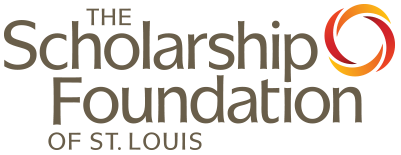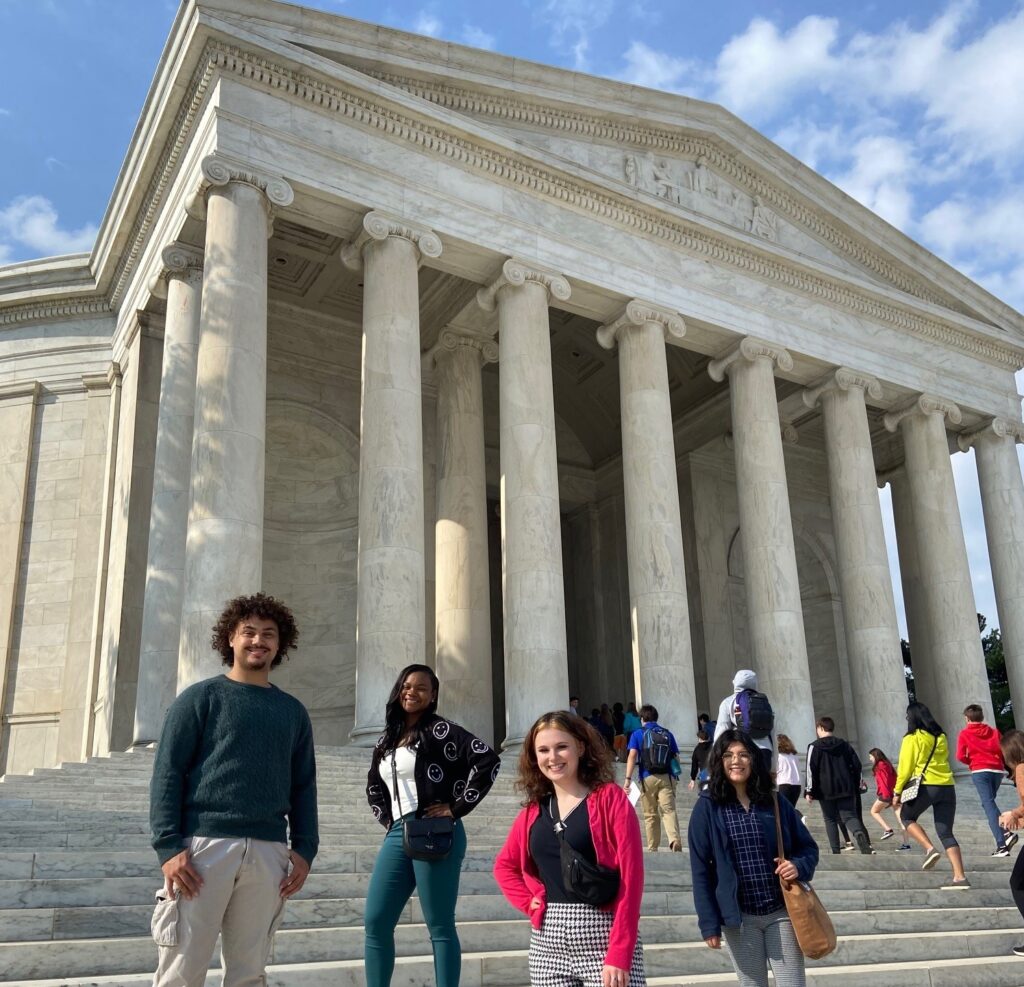
Increasingly, policymakers and media ask whether a college degree is “worth it”. Do the financial benefits outweigh the risks or costs? Is it for everyone? How relevant is the learning occurring at the collegiate level? Is access to higher education worth the public investment required to educate those without economic means?
Answering the question requires attention to the unit of analysis (self, community, nation) and to the context (learning, earning, community building). As a general and inverse guiding principle, college is NOT worth it if it results in irreparable damage to students’ mental, personal, or financial wellbeing.
As general and positive guiding principles, college IS worth it if it creates opportunity, encourages understanding and challenging of systems, moves individuals towards independence, builds equality, and furthers interaction and understanding across differences.
At the risk of losing attention to the finer points made later in this lengthy post, the evidence remains overwhelming that college IS worth it, but the calculus is just a bit more complicated. The answers to the “Is College Worth It?” question can be found, phrased conditionally and by unit of analysis, below:
Among INDIVIDUALS, college IS worth it if individuals:
- Have an interest in and desire to attend.
- Have identified goals that will be well-served by a degree.
- Have a plan and proceed with caution.
- Build cognitive skills that expand their world.
- Seek a pathway to a job requiring a degree.
- Find safety and sense of belonging.
For COMMUNITIES, College IS worth it if families and communities:
- Learn to advocate for themselves.
- Break cycles of poverty.
- Improve community outcomes -economic wellbeing, health, civic engagement.
In our NATION, College IS worth it, if our nation:
- Is committed to building a healthy democracy.
- Provides the masses (poor, black, brown, first-generation) with access.
- Seeks to strengthen systems that build democracy for and among all the people.
Friendly Reminder of the Factors of Race and Class:
Much of the discussion (written and otherwise) on higher education fails to recognize the effects of racism and economic stratification on attainment. Financial means have an impact on educational outcomes at each level, from pre-school to post-graduate training. Race is closely correlated with income and wealth. Systemic racism results in patterns of employment that require higher attainment for comparable financial outcomes, for instance, for Black degree holders when compared to Whites. Intergenerational dynamics of wealth and income are also affected by race and a history of policies perpetuating inequity. Systems of differentiated opportunities and disparate outcomes are longstanding in the United States, and are proving to have long legacies as well. Each and every section that follows, elaborating on all the answers to the question of whether college is “worth it”, must be further examined with specific attention to racial and economic equity.
Learning.
The fundamental purpose of higher education is higher order learning, and development of the habits of the mind that will continue to be useful beyond the classroom. Measurements of the value of such learning are imprecise and insufficient. While the relevance of a liberal arts education is an ongoing topic of debate, core curriculum assuring a well-rounded body of knowledge among graduates is commonplace.
Learning at the post-secondary level transcends content knowledge. Developmentally, traditional college years are times of emerging independence and self-definition. Individuation continues to be an important function of college, though a variety of paces and paths to adulthood exist.
Some have argued that the American university system has remained primarily as it was defined and structured in the years between 1860 and 1925. With regard to learning objectives and content, higher education has not created learning environments that support patterns of (lifelong) learning, develop transferrable skills, and encourage a wide definition of success later in life. The rapid pace of change and the prevalence of technology in learning, working, and communicating, argue for a restructuring of pedagogy at the postsecondary level. While short term workforce needs may argue for specific technical skills, a longer lens would suggest that the penchant to learn, the practices of inquiry, and the capacity to effectively interact and collaborate toward shared goals are all critical not just for individual fulfillment but for creation of healthy community.
Technical education has been promoted by some as a solution to the challenge of escalating college costs and difficulty measuring impact of a degree. If the university is not setting up students for success in independent thought or healthy learning processes, then at the very least higher education should equip individuals with marketable skills that support employment and economic success. In many quarters, a pragmatic approach to higher education has resulted in measuring educational outcomes by job placement rates, starting salaries, and lifetime earnings.
Earning.
Debates pitting the dueling purposes of education as pragmatic (employment and earnings) or erudite (independent thought and democracy) are ancient. From the classic Greek philosophers to Booker T. Washington and W.E.B. DuBois, the argument polarizes outcomes and fails to recognize or explore the relationships between them. Yet the current and future economy underscores that it is no longer sufficient to know things or know how to do things. Relevant higher education is a both/and.
There remains adequate evidence that educational attainment and income are closely correlated. A high school diploma, without a degree or certificate, severely limits earnings. This is true across race and class lines. Lifetime earnings for those with a degree remain significantly more than for those without. Economic analyses of the effects of a degree are complicated, though, by three important factors:
- Intergenerational wealth (or intergenerational debt);
- Systemic racism affecting asset accumulation; and,
- Increasing dependence upon student debt to finance higher education.
The nature of the relationships between the experience of attending college and earning a degree and career outcomes are not clear. For some employers, degree completion represents an initial hiring threshold indicating some important non-cognitive characteristics such as meeting selection criteria, capacity to plan and follow-through, and ability to learn. In the case of fields resulting in licensed professions (law, medicine, nursing, accounting) postsecondary training is expected to equip candidates specifically, though an increasing number of graduates need test preparation classes to pass certifications. The question of the relevance of testing to success in professional practice in these fields is also debatable. Even in these highly technical fields, employment may require degrees and licensure but earnings over time may be far more responsive to other factors.
Trade and technical education is increasingly cited as more directly correlated to employment and earnings. In these programs, unlike many bachelor’s degree programs, the intended relationship between education and work is clear from the start. For some students, this is important for their learning and for their financial circumstances. Short-term, quick credential programs have costs, though. First and foremost, the long-term viability of the technology or trade may be questionable, and shortchanging cognitive skills may be a mistake. Transferability of credits is an important consideration. When employment is the only metric, the financial burden associated with a specific trade or technical certification is especially important. Employer-paid programs may represent a reasonable level of risk for students, while high-cost and low yield for-profit programs that put students in significant debt and may not improve employability have proven dangerous and unbearably costly.
Some argue that the current and future workforce exhibits the effects of automation in ways that colleges have not yet reflected in their degree offerings. The combination of increasing pace of change, technological innovation, and automation does not always result in overall net reduction of jobs, but rather in shifts in which some jobs are devalued or displaced. All jobs at all levels require cognitive skills. While specific technologies or trades may be short-lived, workforce needs for analytical and critical thinking, creativity, problem solving, judgment, and collaboration are not likely to become outmoded in the foreseeable future. Interestingly, these qualities are also cited in the literature and research regarding the connection between higher education and community building and democracy.
Building Community, Fostering Democracy.
Educational attainment is described as essential to democracy, but the ways in which this relationship functions have been less clearly articulated than the belief that it is so. Within the literature, there are at least three connections made: the university as a laboratory for community building; content knowledge as critical to participation and principled leadership; and, development of analytical thinking and capacity to critique policies and systems.
Colleges and universities are often the first environment in which students learn their own responsibility and agency in community. Faculty play a role in creating and supporting critical and creative thinking. Pedagogy can encourage dialogue, interaction among differing perspectives, and capacity to appreciate multiple truths. Learning in collaboration and connection with others, not in isolation, is the fuel upon which democracy depends.
Historically, university governance mirrored the structures of the broader democracy, for better or for worse. Tenure, faculty senates or other forms of assembly and action, student government, and residential campus life can all create the kind of community that will foster higher order thinking and model expectations for engagement. As access to higher education has become more commonplace and technology has further opened access to information and communication, college as laboratory for community building has the potential to open minds and eyes to a wider world, to see systems of oppression, and to challenge ideologies. At once, that is both necessary and threatening to existing order within a democracy.
Some chroniclers of the development of the American university are quick to demonstrate a shift from a pervasive (if effectively elitist) view of higher education as the intellectual frontier to a stratified system based on wealth and labor market demand. Both in curriculum and in degree offerings, many postsecondary institutions have turned to a model of profit and production that does not depend upon much higher order thinking or offer much freedom to critique. Here, education is offered as an individual commodity or good, and the costs are shifted accordingly. Yet the “consumer model” is not entirely applicable, because if students were customers they would demand more.
Higher education is meant to serve a common good and a shared purpose, by building community and advancing knowledge, leadership, and civic engagement. Yet both the path to postsecondary education and the experience of that education is presently deeply affected by economic means. The commodification of the educational process has resulted in an “audit culture” with an overemphasis on testing, measurement, and production values (ironically often measuring skills or knowledge that are obsolete).
What About The Scholarship Foundation of St. Louis?
The central importance of the education of the populace is critical to institutions of higher education and to democracy. This was the case in 1920, when The Scholarship Foundation of St. Louis was founded, and it is the case now. Postsecondary education has become increasingly privatized, through decades of shifting costs from public (state and federal) subsidies to the expectation that the majority of cost will be borne by students/families (out of pocket or debt-financed). Related financial aid policies have resulted in stagnation or proportional decline in need based aid. This threatens the common or collective good. Public and private interests are inseparable and intersected.
By working to create postsecondary access and success for students without economic means, The Scholarship Foundation of St. Louis is actively engaged in building community and fostering democracy. By acknowledging, for 100 years (and counting), that higher education institutions have historically excluded some people and that special interests have excessive influence, The Scholarship Foundation works alongside its students to navigate not just college-going but to understand and support the collective and common good. By assisting students in identifying their own educational goals and supporting their pursuits, The Scholarship Foundation is an engine for individual success, regional community building, and the strengthening of democracy, however imperfectly it manifests.
As The Scholarship Foundation of St. Louis moves toward a centennial in 2020, the champions of the Foundation are working to reframe the question of the worth of a college degree, considering unit of analysis and context, and rejecting the single question/single answer analysis that is presently being pitched by lawmakers and media and their audiences. In setting a strategic plan for the start of the next 100 years, the Foundation has both the opportunity and responsibility to examine its own programs and community deliverables within the context of these questions and their conditional answers.
In what ways do our current programs and fundraising efforts serve the purpose of advancing higher education? What are we not adequately addressing in our work? What might we need to more deeply understand? What actions might we take to do even better?
– Faith Sandler
Bibliography
Autor, David. (May 23, 2014). “Skills, Education, and the Rise of Earnings Inequality among the ‘Other 99 Percent’, Science, Volume 344 (Issue 6186), pp. 843-850
Berrett, Dan. (January 26, 2015). “The Day the Purpose of College Changed”, The Chronicle of Higher Education.
Belkin, Douglas. (February 21, 2018). “US Colleges Are Separating Into Winners and Losers”, Wall Street Journal.
Bettman, Meta. (c. 1926), “The Social Utility of Scholarships”, unpublished essay.
Davidson, Cathy N. (2017). The New Education: How to Revolutionize the University to Prepare Students for a World in Flux, Basic Books.
Deming, David, Claudia Goldin, and Lawrence Katz. (Winter, 2012). “The For-Profit Postsecondary School Sector: Nimble Critters or Agile Predators?”, Journal of Economic Perspectives, Volume 26:1, pp. 139-164.
Giroux, Henry. (June 26, 2017), “Thinking Dangerously: The Role of Higher Education in Authoritarian Times”, Truthout, pp.
Moran, Thomas. (2014). “The Paradox of Democracy and Higher Education,” The Common Good: A SUNY Plattsburgh Journal on Teach and Learning 2
Spellings, Margaret. (March 2, 2018). “The Perils of Trashing the Value of College”, The Chronicle of Higher Education





